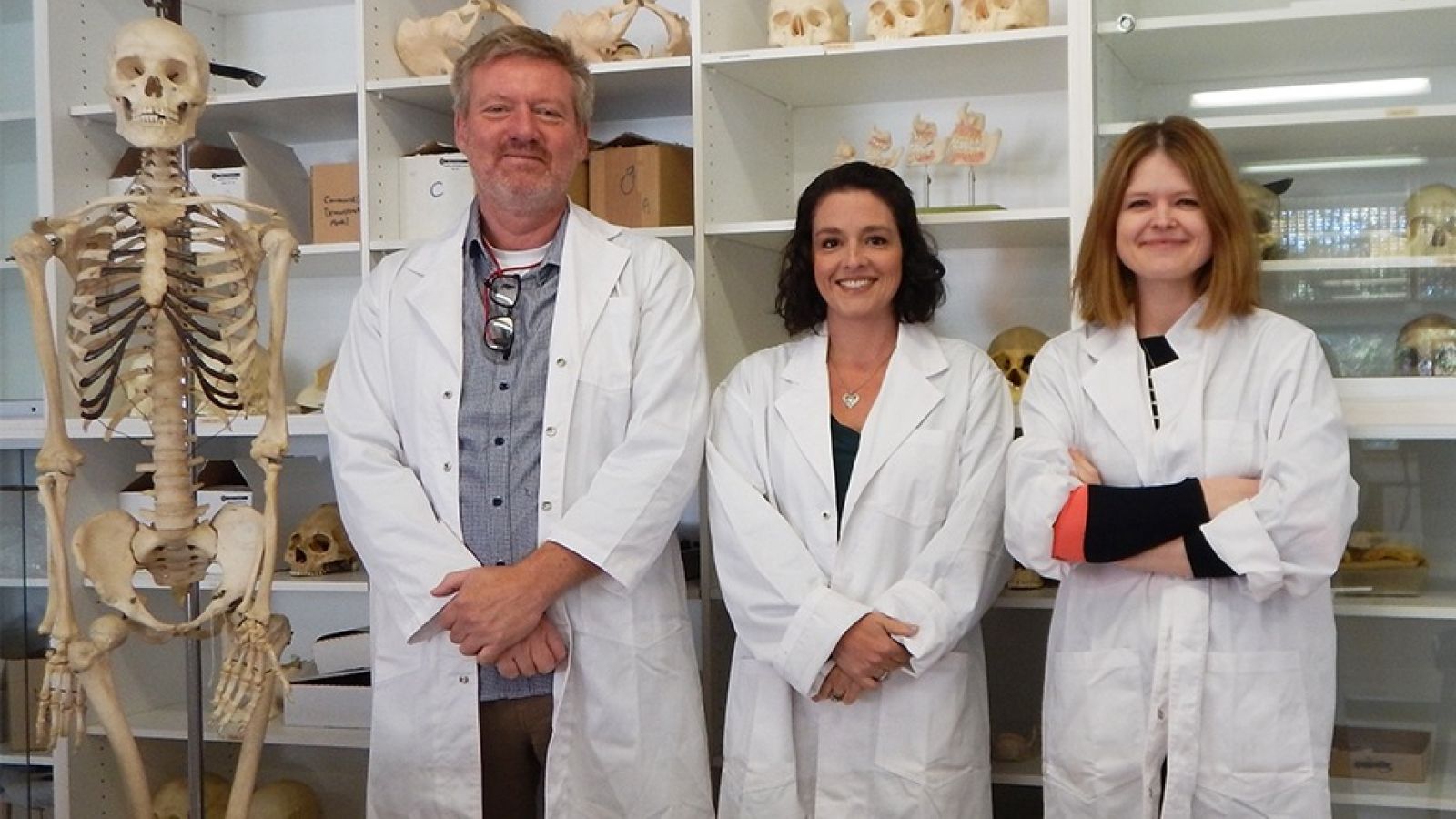Major Equipment Grant win for ANU Biological Anthropology

The leading ANU Biological Anthropology department will become the only lab of its kind in Australasia with a new boost to its equipment arsenal.
The ANU School of Archaeology and Anthropology recently won an ANU Major Equipment Grant worth $135,000 to acquire a new Olympus microscope to aid the study and reconstruction of bone and dental growth in human and non-human primates from the Asia-Pacific.
Head of Discipline Dr Alison Behie said that with this increase in research capacity, the department will be able to investigate how stress and disease impact the health of humans and other primates in a new way.
“We’ll be able to gain a deeper understanding of the role that stress has on the development of teeth and bone by providing a biological signal of how stress disrupts the growth of bones and teeth,” Dr Behie said.
“This has huge implications for how we understand stress during pregnancy, childhood and later life in terms of implications on health, development and wellbeing of individuals.”
“As the biggest primatology program in the country, we will also be able to explore these issues in monkeys and apes to better understand the evolutionary implications of these relationships.”
The new Olympus LEXT OLS5000 3D Measuring Laser Microscope System allows for “non-destructive, non-contact surface scanning of unique skeletal samples”, according to skeletal biologist Dr Justyna Miszkiewicz.
“This is of key importance to Biological Anthropology research where we often deal with unique specimens from museums or archaeological collections,” she added.
Professor of Bioarchaeology Marc Oxenham said that while the new microscope is slated for intensive research use, the department will also train advanced graduate students to use it, with a view to “developing our next generation of young researchers”.
“This is an amazing outcome for the School of Archaeology and Anthropology,” Professor Oxenham said.
“Our School has one of the most well-developed and cutting edge Human Biological and Archaeological Science education and research programmes in the country, but we’re often perceived as social scientists without the need for state-of-the-art scientific instrumentation.
“Being awarded this grant is a testimony to our unique position between two often separate worlds of knowledge generation and our ability to be recognised as leading educators and researchers in both spheres.”